by Yannis Antonopoulos (Panteion University, Athens)
Τhe electoral success of the Golden Dawn Party (in Greek: Chrissi Avgi) in 2012 took place during a period of financial crisis which was characterised by the exacerbation of anti-German feelings in a part of Greek society and the opposition press. An openly expressed neo-Νazi organisation with extremist and marginal actions for more than two decades managed to enter the Greek Parliament ensuring about half a million votes, matching 7% of the voting population. The utilisation and embezzlement of the historical past as it was expressed by a part of the public media did not leave the organisation’s public discourse unswayed. Golden Dawn took advantage of the circumstance in order to be self-promoted as a patriotic political party which participates in the unanimous national struggle for the assertion of the German indemnities and the occupation loan, unleashing vituperative speech against the “German loan sharks” etc.
However, a closer observation of the overall line of the organisation since the early 1980s until the recent past gives us a more different image from the one they have been trying to construct diligently, though without success. The purpose of this essay is to summarize the excerpts that express the organisation’s views concerning the Greek-German relations and the two countries’ painful mutual past, as they have been revealed through their publications (magazines, newspaper), books and charter.
In the first part, the ideological connection between Golden Dawn and German National Socialism is established. In the second part, the efforts to adapt National Socialism to the “Greek Weltanschauung” through the shaping of its “Greek orientation” are noted. In the third part, excerpts from the articles that propagate a historical revisionist view in relation to the events of the World War II and the Greek and German involvement are presented, whereas the fourth and final part is an attempt at a general overview of contemporary relations between Greek and German Neo-Nazis, as they have been documented by the organisation.
Golden Dawn and German National Socialism
Even though it is widely acknowledged that Golden Dawn constitutes an organisation with ultra nationalist, anti-democratic and racist rhetoric, in reality it is something more than just an ordinary party of the modern European extreme right. What had always differentiated this political party from similar organisational schemes in Greece and the rest of Europe was its commitment to the ideological principles of German National Socialism (Fig. 1). Even before acquiring political status, the exclusive club that was formed around the magazine of the same name stated its loyalty to National Socialism in its German version. Throughout the 1980s the magazine was published with covers that were decorated with Nazi symbols, German eagles with swastikas, photographs of Hitler (Fig 3), Rudolf Hess (Fig. 4), SA and SS men (Fig. 5) and other propaganda illustrations from the Third Reich. At the centre of the editorial issues was pagan, anti-Semitic and anti-Christian content, whereas inter-temporal points of reference were members of the Nazi regime, intellectuals, poets or philosophers like Oswald Spengler, Ezra Pound and Martin Heidegger who, according to the authors of those articles, were associated with the Nazi regime.

Fig. 1: Golden Dawn’s leader Nikos Michaloliakos, 1990s.
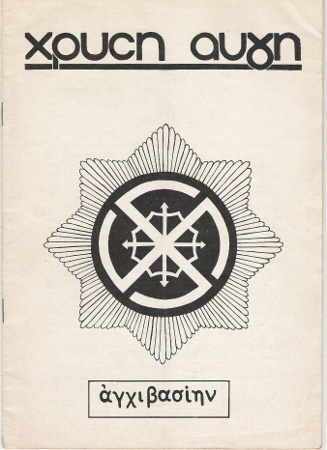
Fig. 2: Golden Dawn magazine (#1, December 1980).
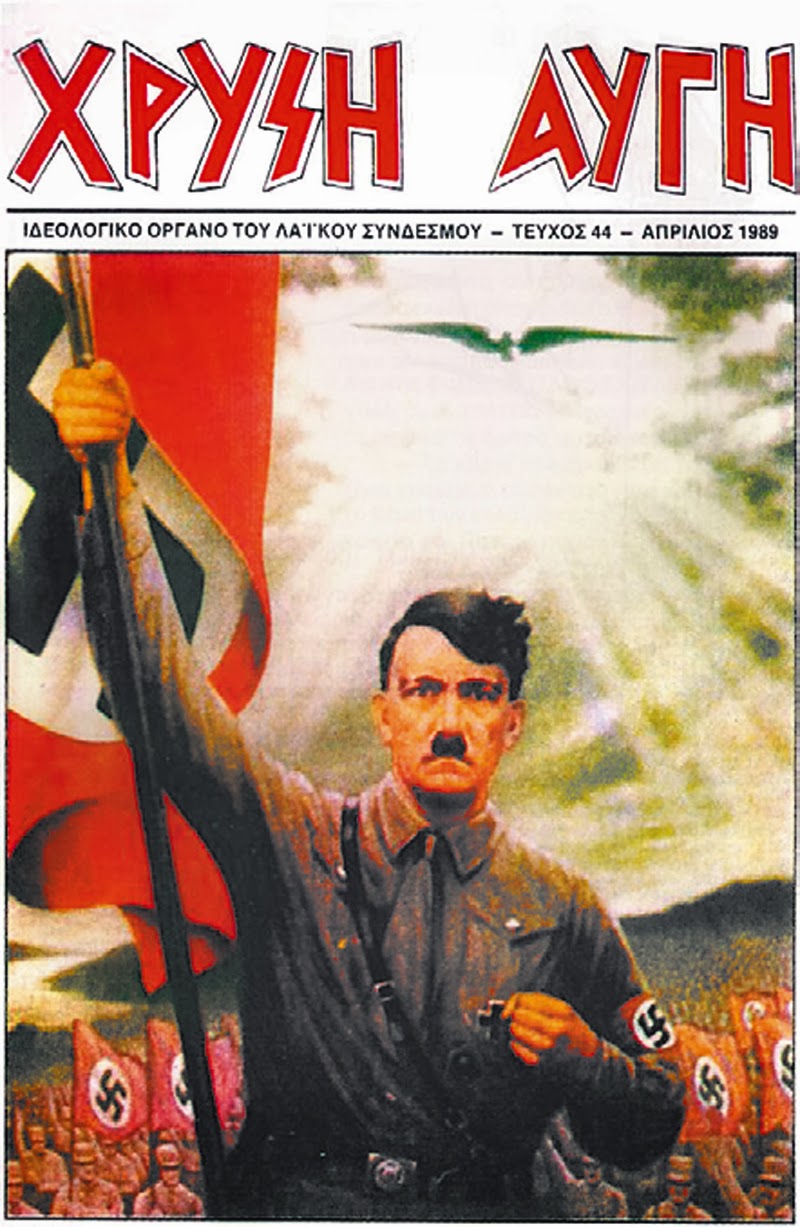
Fig. 3: Golden Dawn magazine (#44, April 1989).

Fig. 4: Golden Dawn magazine (#29, September 1987).
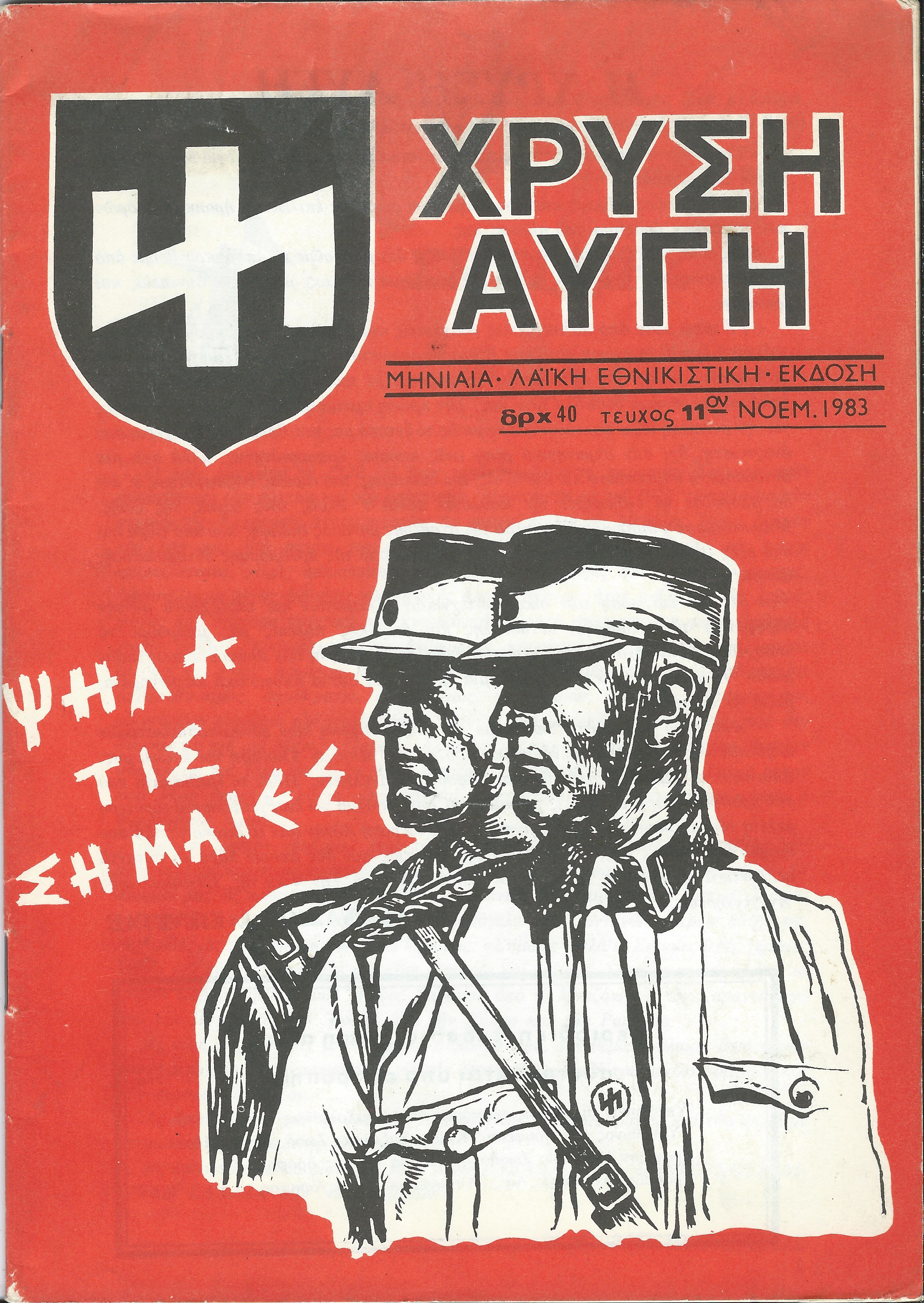
Fig. 5: Golden Dawn magazine (#11, November 1983).
Golden Dawn was self-declared as the “only authentic organisation of National Socialist ideology in our fatherland” according to its statute of February 1986, while its purpose was to “reveal the true dimension of national Socialism under the slander and dirt in which they were marred by the winners of the war.”1 In the Declaration of Principles, the more structured manifesto of the organisation, which was released in the late 1980s, the starting point of the political struggle is the historical revisionism that involves first of the denunciation of the winners of the war, and second the dramatic narration of the defeat of the Nazi Germany. “An entire civilisation of millennia with its magnificent moral and material underpinnings, its unbeatable intellectual and aesthetic values, concentrated on the most genuine and vibrant modern historical facet ‒ National Socialism ‒ fought for its restoration and rebirth, and after being defeated became prey to the voracious jaws of the winners.”2
The lifetime leader of Golden Dawn, Nikos Michaloliakos, in 2012, during a speech to a party audience, confirmed the link of the organisation with its ideological archetypes; “We are the seed of the defeated of 1945! This is who we are! Nationalists, National Socialists, Fascists!”3 Their persistence on the historical restoration of the Nazi Germany is constant in time. For example, in the Synopsis of the ideological stigma of Golden Dawn which was published in a series of articles, the historical right of Hitler’s Blitzkrieg is supported in relation to the Greek “Megali Idea”: “National Socialist Germany was not an expansionist state, in the same way that Greece would never be one. Greece would require a realisation of the inalienable national laws, the integration of Cyprus and Albania in the national body, and was determined to fight for it.”4
National Socialism, Hellenism and Germanism in the narrative of Golden Dawn
The dominant view of Golden Dawn is that National Socialism is a “Greek Ideology”, a worldview that draws its roots from ancient Sparta and the Platonic philosophy. This point of view is not something new; it was widespread among Nazi theorists since the interwar period, as Johann Chapoutot has analyzed in his book National Socialism and Antiquity.5 But if the ancient roots of the National Socialism were supported by the Nazi Germany’s theorists such as Alfred Rosenberg in order to transfuse momentous historical depth in Third Reich, in the case of Golden Dawn the reverse is attempted; the “affiliation” and “localization” of Nazism through its adaptation to Greek nationalistic ideology. Hitler’s dictum from Mein Kampf that the magazine chooses to put on the cover of one of its first issues is typical (Fig. 6); “The struggle that rages today is for very great aims. A culture combining millenniums and embracing Hellenism and Germanism is fighting for its existence.”6

Fig. 6: Golden Dawn magazine (#6, August-September 1982).
In the same issue of the magazine (November 2006) one reads “The Greek orientation of National Socialism is unquestionable” in one of the dozen of articles on ancient Sparta as a “forerunner of the National Socialist State”. The author continues by pointing out the influence of the Greek spirit on Wagner and Nietzsche, “the two great spiritual giants who were adored in Germany at that time […] both were deeply Hellenists.”7 Is this glorification of the Third Reich a kind of affiliation with Germany on the part of Golden Dawn? Michaloliakos states in his article in 1991: “We admire the National Socialist State of Adolph Hitler and not Germany, because if we were as they want to falsely present us ‒ German-affiliated ‒ we would equally admire Helmut Kohl’s Germany or Willy Brandt’s. Finally, if we were ‘slavish’ because we believe in the political system of a country’s occupiers from another time, what could be said of the liberals who admire and follow the system of the current bosses of this country, the Americans?”8
However, an unsigned article titled “Germany: One nation, two states” published in the Golden Dawn magazine in October 1989 (interestingly, just one month before the fall of the Berlin Wall) inveighs against the “enslaved to Judeo-American interests governments of Western Europe” for their unwillingness “to take a clearly positive attitude to the German problem [i.e. the partition].” The article continues: “And of course all who oppose the reunification of Germany barricade themselves behind the argument that a united Germany would be a powerful state with predatory and gluttonous appetite for its neighbours. The myth of the ‘evil Germans’ who threaten their innocent neighbours is still in use.” The article closes with the secret hope that Germany will again be the springboard for the realisation of a new united Europe along the lines of Hitler’s Neue Europa.9
Greece, Germany and the Second World War
How do they reconcile this devotion to Nazi Germany – being “nationalists” ‒ with the fact that Greece in the Second World War suffered badly from the German occupation? There have been several attempts to answer this question drawing upon the articles written byMichaloliakos: “Germany did not want involvement in military operations against Greece in the Balkan region. Not because of philhellenic sentiments, but for the simple reason that a war in the Balkans was completely contrary to the strategic ambitions of Germany and extremely dangerous for the development of martial planning in general. Something which was proven absolutely right subsequently.”10, Loghi editions, Athens 2002, p. 23.]
Elsewhere, the Nazi version of the events is adopted. For example, concerning operation “Marita”: “It is a fact that, according to the German claims for assault against Greece, the main reason was stated as the presence of English troops in the country; a presence which ultimately had no military significance and was strongly refused by Ioannis Metaxas. That fact certainly did not justify the German attack, and in any case the country ultimately was occupied. However, the ‘really decent and noble attitude of the German army against the defeated Greek one’ is described as an admirable stance. Who ignores the fact that from all the armies with which the Germans were involved, the only ones who were not considered prisoners of war were the Greek officers and soldiers who were liberated in order to return to their families? Is there anyone who doesn’t know the statements of Hitler in the Reichstag regarding the heroism of the Greek Soldier?”11
Michaloliakos’s point of view concerning the national resistance movement coincides pretty much with his view of the post-Civil war Nationalism. “The fighters of the famous ‘national resistance’ all they did was to ravage the fortunes of the villagers, to assassinate Greek anti-communist patriots and to ‘pocket’ the pounds of the English. Their only ‘resistance act’ was to murder now and then some lone German soldier with the objective to lure the occupation forces in retaliatory actions that would lead the people to their side.”12 The turning point where the leader of Golden Dawn exceeds the extreme right anti-communist propaganda is when attempting to rationalise the mass crimes of the German army against civilians. For example, the mass execution by the troops of Wehrmacht of 700 men in Kalavryta and the slaughter of 149 residents of the town of Hortiatis are presented in his article as an ugly but normal consequence of the actions of leftist rebels in retaliation for the “unholy” acts of the “Bolsheviks”. Similar arguments are used in relation to the famine of 1941, in order to downplay the responsibility of the German army for it.
On the subject of whether Greece should have sided with the Allies or the Axis, the leader of Golden Dawn is clear. “It is our belief that the position of Greece in this battle for the dominance of the world should have been by the side of National Socialism, the Greek Ideology. For this reason we believe that our position in 1940-41 was in Tepelene, in Mourgana, in Rupel, in the battle for the defence of our fatherland from invaders. But from 1943 to 1945 we believe that our position was at Stalingrad, in Sevastopol, in Crimea, in Berlin, in the battle to defend Europe, to defend the Greek culture from the Judeo-born Bolshevism, from the Judeo-driven American imperialism.”13 The above positions were the beliefs of diverse collaborators of Germans, a fact acknowledged by Yorgos Mastoras (Misiakas), theorist of the organisation; “The label of ‘traitor’ is given immediately, without any mitigating circumstance, to those who are trying to see national Socialism and what this entails keeping cool and without blinkers, far from inarticulate cries and hysterical screams. […] We are fed up with various stupid accusations by ‘rightists’ and ‘leftists’ of ‘treacherous ideology’, ‘collaboration with the Germans’, and other inane stories that are supposedly correct. Golden Dawn and the people surrounding it are even leaving aside the fact that we were ALL unborn at that period.”14
Current state of affairs between Greek and German Neo-Nazis
Golden Dawn has always maintained regular contact with like-minded Germans. The first efforts of its core leadership to join an international Nazi network date from 1981 and the endorsement of the “Barcelona Declaration” through which Golden Dawn became a part of the international neo-Nazi “New European Order”.15 In the recent past, a few years before the outbreak of the economic crisis, the Golden Dawn and the German NPD intensified their contacts, as well mutual visits by representatives of one party to events organised by the other party.
For example, representatives of Golden Dawn attended the May 8, 2005 celebrations in Berlin Alexanderplatz in memory of Hitler’s defeat and the German capitulation to the Allies. The official magazine of the organisation, Antepithesi (“Counterstrike”), came out with the title: “‘Berlin fell, our hearts not’ carrying a slogan ‘May 1945-May 2005’.We do not celebrate anything.”16 In January 2006 the leader of NPD and current MEP Udo Voigt visited Athens in order to take part in the annual event organised by Golden Dawn concerning the Imia remembrance day, in which he gave a speech (Fig. 7) and then marched holding the same banner with Nikos Michaloliakos (Fig. 8). This grand visit was reciprocated a few months later by Golden Dawn with the visit of Yorgos Dimitroulas in Rostock, Germany, to commemorate the “Nationalist May Day” (Fig. 9).
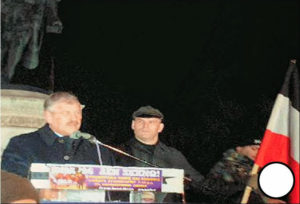
Fig. 7: Udo Voigt (NPD) Athens, January 2006.

Fig. 8: Udo Voigt (NPD) and Nikos Michaloliakos, Athens, January 2006.
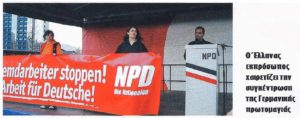
Fig. 9: Antepithesi magazine #27, May 2006.
In the following year, 2007, a NPD delegation attended the rally for the Imia remembrance day, which was even greater in number, whereas the speech of Udo Voigt was warmly received by the audience.17 Then the visit of Golden Dawn to Germany took place in June, upon invitation by Udo Voigt to a protest organised by NPD on the occasion of the G8 summit in the city of Schwerin. On behalf of “Golden Dawn MP Nikos Michos attended the protest after having a tour at the monuments of the town with Udo Voigt, as we are informed by the photos published in Antepithesi.”18
Sightseeing visits to monuments are reciprocated between Greek and Germans. The Germans, for example, take the Greeks to military cemeteries where officers of the Third Reich are buried, as well as to the Führerbunker where Hitler was cremated along with Eva Braun after their suicide. On the other hand, members of Golden Dawn give their guests guided tours at the Acropolis and afterwards in the Archaeological Museum, leading them directly to the wing with the vessels where they can admire the “age-old swastikas”.19 Of course, they never miss the opportunity to visit the German military cemetery of Rapentosa in order to pay their respects to the German soldiers killed on Greek soil.20
In February 2013, Golden Dawn received in its parliamentary offices two German visitors, leading members of the Nazi organisation Freies Netz Süd, a branch of NPD which acts primarily in the state of Bavaria and its northern part, Franconia. The visit of the German neo-Nazis to the “temple of Democracy” [i.e. parliament] caused various reactions and negative comments in the press. A few days before this incident, Der Spiegel magazine informed its readers that Golden Dawn had contacts with neo-Nazis from Bavaria. Golden Dawn’s answer mentioned “jittery Germans”, “smearing and spreading of fictions” by the vicious Der Spiegel magazine and came to a close with the following statement: “We inform in every direction that Golden Dawn has nothing to do with foreign political organisations or parties.” This was refuted a short time later by a text on the website of Freies Netz Süd, whose members published detailed information concerning their welcome by their Greek same-minded friends (Fig. 10).
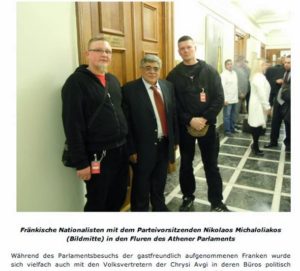
Fig. 10.
- Statute of Golden Dawn, February 1986; http://tinyurl.com/zd9k342, accessed on 29 August 2016 ↩
- Declaration of Principles, 1987 (?). ↩
- https://www.youtube.com/watch?v=Xf1yd8Anrw0 ↩
- “Summary of the Golden Dawn’s ideological positions. Explanations-judgments-comments”, Golden Dawn magazine #23, January 1987. ↩
- Johann Chapoutot, Le national-socialisme et l’Antiquité, PUF, 2008. ↩
- http://www.mondopolitico.com/library/meinkampf/v2c2.htm, accessed on 20 July 2016. ↩
- Eleftherolakon; “Ancient Sparta and National Socialism”, Golden Dawn magazine #130, November 2006. ↩
- Nikos Michaloliakos; “National Socialism: Our truth”, Golden Dawn magazine #64, 15 July 1991. ↩
- “Germany; One nation, two states”, Golden Dawn magazine #49, October 1989. ↩
- Nikos Michaloliakos, Οι τελευταίοι πιστοί [The Last Believers ↩
- Nikos Michaloliakos; “National Socialism: Our truth”, Golden Dawn magazine #64, 15 July 1991. ↩
- Nikos Michaloliakos; “National Socialism: Our truth”, Golden Dawn magazine #64, 15 July 1991. ↩
- Nikos Michaloliakos; “National Socialism: Our truth”, Golden Dawn magazine #64, 15th July 1991. ↩
- Yorgos Mastoras: “Patriots or Traitors? A schizophrenic dilemma”, Golden Dawn magazine #100, 28th October 2000, pp. 6-10. ↩
- XYZ Contagion; “When Golden Dawn joined the neo-Nazi International „New European Order“ and ‘Declaration of Barcelona’“, 1981, https://xyzcontagion.wordpress.com/2013/03/31/net/ ↩
- “Berlin 1945-2005: ‘The walls fell, our hearts no’, Antepithesi magazine #23, June 2005. ↩
- Imia 2007, Antepithesi magazine #28, May-June 2007. ↩
- “Nationalists against Globalization. Schwerin 2/6/2007 – Golden Dawn was there”, Antepithesi magazine #29, July-August 2007. ↩
- Spy Jungle-Report: “Golden Dawn’s international Nazi networking”, Unfollow magazine, #15, March 2013. ↩
- http://origin2.ethnos.gr/article.asp?catid=22767&subid=2&pubid=63958211, accessed on 29 August 2016. ↩
